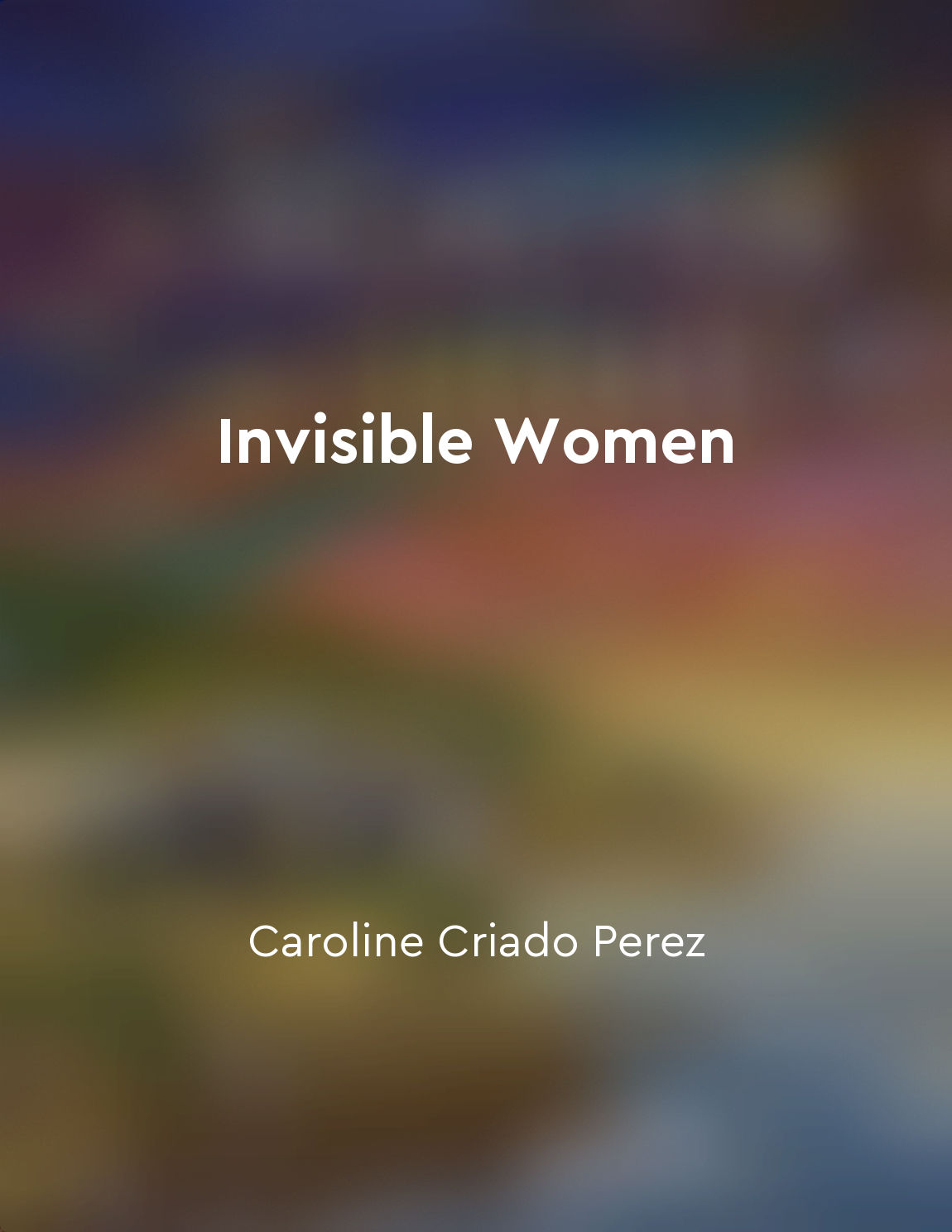Sexism in STEM fields perpetuates inequalities in society from "summary" of Inferior by Angela Saini
Sexism in STEM fields is not just a problem within the confines of laboratories and research institutions; it has far-reaching consequences that extend to all aspects of society. By restricting women's participation and advancement in science, technology, engineering, and mathematics, we are perpetuating inequalities that have existed for centuries. The belief that women are inherently inferior to men in these fields not only hinders progress in scientific research but also reinforces harmful stereotypes about women's abilities and intelligence. When women are systematically excluded from STEM careers, they are denied the opportunity to contribute their unique perspectives and talents to the scientific community. This lack of diversity in STEM fields not only limits the potential for groundbreaking discoveries but also perpetuates a cycle of inequality that affects all members of society. By dismissing or undervaluing women's contributions to science, we are perpetuating a system that favors men and reinforces the idea that women are less capable than their male counterparts. The effects of sexism in STEM fields go beyond the individual level and have broader implications for society as a whole. When women are underrepresented in STEM professions, they are less likely to have access to high-paying jobs and opportunities for career advancement. This economic disparity not only affects women's financial stability but also contributes to larger social inequalities based on gender. By limiting women's participation in STEM fields, we are perpetuating a cycle of inequality that affects not only women but also their families and communities. Furthermore, the perpetuation of sexism in STEM fields sends a damaging message to young girls and women who may be interested in pursuing careers in science and technology. When they see few female role models in these fields, they may internalize the belief that they are not welcome or capable of succeeding in STEM careers. This lack of representation can discourage girls from pursuing their interests in science and technology, further perpetuating the cycle of inequality in STEM fields. In order to break this cycle of inequality, it is essential that we address and dismantle the sexist attitudes and biases that persist in STEM fields. By promoting diversity and inclusion in science and technology, we can create a more equitable and inclusive society where all individuals have the opportunity to thrive and succeed. Only by challenging and changing the systems that perpetuate sexism in STEM fields can we create a more just and equal society for future generations.Similar Posts
No Child Left Behind Act had mixed results
The No Child Left Behind Act was a significant piece of education legislation that aimed to improve student achievement and clo...
Difficult women refuse to be silenced
Throughout these stories, the women I write about are not easily contained. They are messy and complicated, refusing to conform...
Teach girls to reject marriage as ultimate goal
The idea of teaching girls to reject marriage as the ultimate goal is about encouraging them to see themselves as complete indi...
Education and societal norms influence gender disparities in academic achievement
The disparities in academic achievement between genders are not solely a reflection of innate differences in ability, but are a...

Women are more likely to be injured or killed in car accidents
Car crashes are one of the leading causes of death and injury globally, and it is a sad reality that women are more likely to b...
Women's opinions should be valued
It is crucial to recognize the importance of women's opinions in society. Women possess intellect and reasoning just like men, ...
Balancing work and personal life
The demands of a career in science can sometimes feel all-consuming. The long hours in the lab, the pressure to publish groundb...
